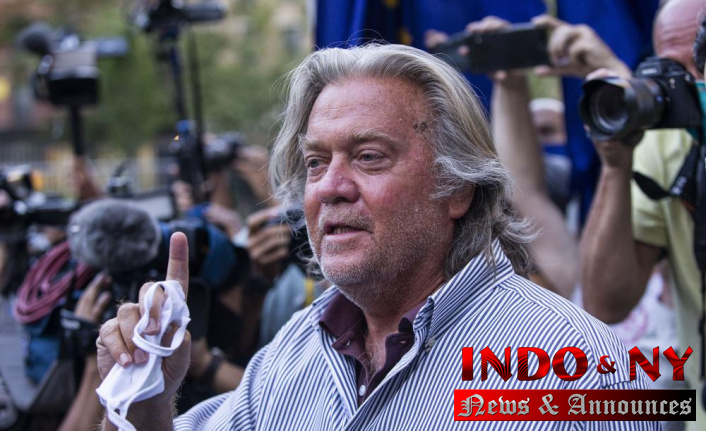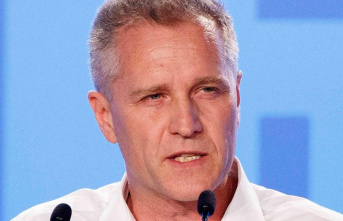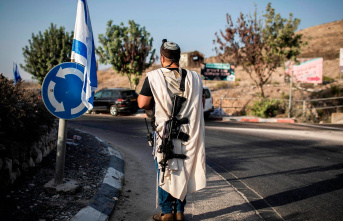Chairman of the committee, Rep. Bennie Thompson (D-Miss.), said Tuesday that the panel would vote to charge Bannon with being an adviser to Donald Trump over years. He was in contact with Trump before the worst attack on Congress in 200 years.
Thompson stated that the Select Committee would not tolerate any defiance of subpoenas. He claimed that Bannon is hiding behind the statements of the former president regarding privileges he purportedly invoked. We completely reject his position."
The recommendation for criminal charges would be approved by the Democratic majority committee and sent to the full House. If they are approved by the Democratic-majority committee, the criminal charges would be sent to Congress. The Justice Department has the final say in prosecution.
Bannon's confrontation is only one aspect of a larger and more complex congressional inquiry. There have been 19 subpoenas and thousands of pages of documents sent to the committee and its staff. The panel's members have taken the initiative to challenge Bannon's refusal and vow to restore the power of congressional subpoenas, which were regularly ignored during Trump's presidency.
Bannon was scheduled to appear before the committee on Thursday. However, his lawyer stated that Trump had told him to not comply with the request, citing potentially confidential information that could be protected under executive privileges. Bannon, who wasn't a White House staffer Jan. 6, failed to submit documents to the panel by last week.
The committee could still be blocked by Trump's refusal to cooperate with Congress for years. The House didn't move to discredit the long-serving Trump advisor who refused to comply with a subpoena in a GOP-led investigation into Trump’s Russia ties in 2018.
Although President Joe Biden supports the work of the committee, it is not clear whether the Justice Department will pursue criminal contempt charges against Bannon and any other witnesses who might challenge the panel. Even if the department decides to prosecute, it could take several months or even years. These contempt cases can be very difficult to win.
The committee members are urging the department to stand by them.
Adam Schiff, Chairman of the House Intelligence Committee, also serves on the Jan.6 panel. He stated that he expects the Justice Department will prosecute these cases.
Schiff stated that people like Steve Bannon have been given the impression they are above the law over the last four years during a interview with C-SPAN's Book TV, which airs next weekend. They're going to discover the truth."
Schiff claimed that attempts to hold Bannon or others in contempt during Russia's investigation were stopped by Republicans and Trump's Department of Justice.
Schiff stated, "But now, we have Merrick Garland and an independent Justice Department. We have an attorney general who believes the rule of law -- so this is why we can have the answers."
Although Bannon has obstructed the Jan. 6 committee's decision, Trump aides who were subpoenaed seem to be in negotiations. The scheduled Thursday deposition of Kashyap Patel (ex-Defense Department official) was postponed, but Patel is still engaged with the panel, an aide to the committee said. To discuss confidential discussions, the aide requested anonymity.
The depositions of two other Trump employees -- the former White House chief-of-staff Mark Meadows and Dan Scavino, who were both scheduled to appear on Friday -- have been postponed. Patel and Meadows have been granted a "short delay" because he is engaging with the panel. Scavino's scheduled deposition has been rescheduled due to delays in serving his subpoena.
Beyond his lawyers' efforts to assert executive privilege, it is not clear to what extent Trump tried to influence his aides. The former president stated that the members of the committee must "hold themselves in criminal contempt" while adding "the people aren't going to stand for it!"
Other witnesses are cooperating including those who organized and staffed the Trump rally at the Ellipse, which was behind the White House. This rally preceded the riot. The committee subpoenaed 11 organizers of the rally and gave them a Wednesday deadline for documents and records to be turned over. They were also asked to appear at scheduled depositions.
Lyndon Brentnall was among those who complied. His firm was contracted to provide security for Ellipse that day. Megan Powers, long-time Trump campaign staffer, and Hannah Salem, were also included. It is not clear if any of the other subpoenaed had complied.
Many of the rioters that stormed the Capitol Jan. 6 marched up to the National Mall after having attended at least some of Trump's rally. Trump repeated his meritless claims about election fraud and implored the crowd to fight like hell. Dozens upon dozens of officers were hurt when Trump supporters overpowered them and broke through doors and windows to disrupt the certification of Biden’s victory.
As they marched through Capitol, the rioters reiterated Trump's claim of widespread fraud. However, the state officials confirmed the election results and the courts upheld them. William Barr, Trump's attorney general, stated that the Justice Department had not found any evidence of widespread fraud that could have rewritten the results.
A subpoena was also issued by the panel to a former Justice Department lawyer, who positioned himself to be Trump's ally in his efforts to challenge the 2020 election results.
The committee announced Wednesday that Jeffrey Clark demanded documents and testimony. This is in response to the efforts of the committee to investigate not only the insurrection, but also the turmoil that rocked the Justice Department in weeks preceding it. Trump and his allies relied on government lawyers to support their election claims.
Clark, the Trump administration's assistant attorney general, is a key character. Last week, a Senate committee report showed that Clark supported Trump's efforts to reverse the election results. He clashed with his department superiors who refused to comply. This culminated in a dramatic White House meeting where Trump contemplated elevating Clark to the position of attorney general.












